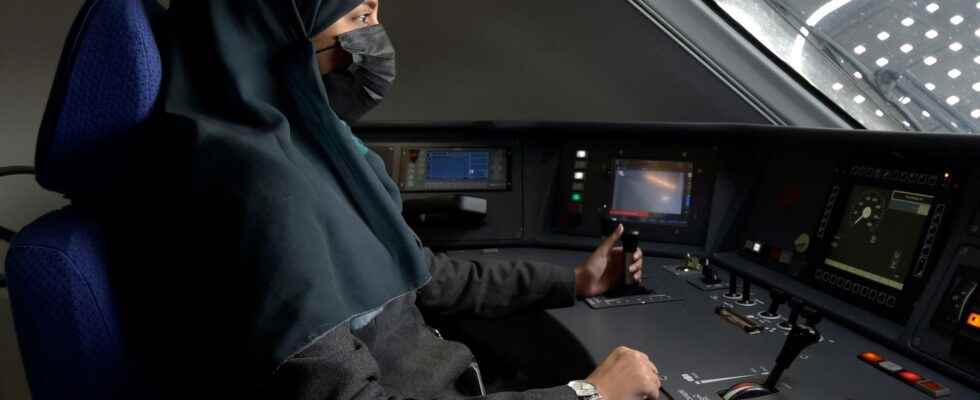Published: Less than 20 min ago
More and more Saudi women want to enter the workforce and it is a challenge for the rulers to create jobs for everyone.
When 32 positions as train drivers on the route between Mecca and Medina were advertised, the applications poured in.
– The first day was like a dream for me, boarding the train, entering the driver’s cabin, says 25-year-old Tharaa Ali.
She is one of the 32 women selected from 28,000 applicants to drive the high-speed trains between Mecca and Medina. She is also one of the growing number of Saudi women working professionally. Women’s share of the Saudi workforce has increased from 17 percent to 37 percent since 2016.
High unemployment
But unemployment among women is still high, 20.5 percent last year, compared to 4.3 percent for men. It shows an urgent task – to create jobs for all the women who want to work.
– The challenge has changed. From encouraging women to work to finding enough jobs, says economist Meshal Alkhowaiter.
Traditionally, Saudi women have worked in education and medicine, but new rules banning gender discrimination in the workplace and reduced dress code requirements have created new opportunities.
But society’s norms do not always move as quickly as changing regulations, something the female train drivers have experienced.
Received praise
Raneem Azzouz, also newly hired on the Mecca-Medina route, says a female passenger approached her at the terminal station and explained that she could not believe a woman could do the job until she saw it with her own eyes.
– She said: “Honestly, when I saw the job advertisement I was completely against it. I said that if my daughter was going to drive, I wouldn’t go with her.”
But after the trip went off without a hitch, the woman wanted to praise Azzouz.
Those who oppose more women entering the workforce are a minority, says Sussan Saikali of the Arab Gulf States Institute in Washington. The majority is for a change.
– There have been some comments from men who say that women take jobs away from them, but that is unusual.
Facts
Saudi Arabia
Oil-rich Saudi Arabia, which makes up most of the Arabian Peninsula, is an absolute monarchy ruled by the royal family (House of Saud). Crown Prince Mohammed bin Salman, also known as MBS, has in recent years gained increasing influence over politics in the ultra-conservative country.
Around 33 million people live in Saudi Arabia, of which roughly 6 million live in the capital Riyadh. Saudi Arabia has no political parties and no elected parliament. The king appoints an advisory assembly, the Shura Council, which has a somewhat expanded role in legislative work. Religious leaders are also consulted on important decisions.
The board is based on the Koran and on Islamic law, Sharia. The country is governed in accordance with Wahhabism, a fundamentalist school of Sunni Islam.
Human rights groups such as Amnesty International and Human Rights Watch (HRW) regularly accuse Saudi Arabia of arbitrary arrests, torture and the death penalty, which is also imposed on children.
Source: National Encyclopedia and Country Guide/UI
Read more
